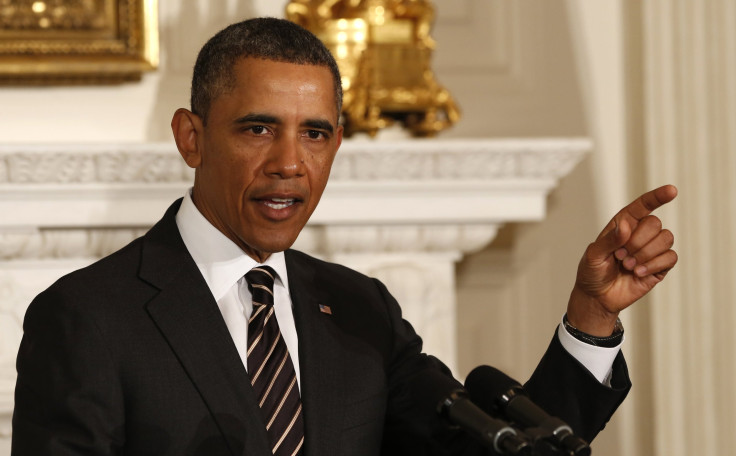Sequester Cuts 2013: Obama Banks On Governors To Pressure Congress

Congressional Republicans aren't taking, apparently, any action to prevent the sequester cuts from taking effect on Friday -- but the party’s governors, after the White House spelled out exactly how bad those cuts would be for states -- may find themselves at odds with the party's congressional leadership, at least behind closed doors.
President Barack Obama has moved the sequestration fight to the states' level, warning governors of the potential impact in the $85 billion budget cuts to defense and non-defense spending. He has called on the governors to apply pressure to their members of Congress to avoid the automatic across-the-board spending cuts.
At the White House on Monday, Obama told the National Governors Association that while the impacts won't be felt on day one, "rest assured the uncertainty is already having an effect. Companies are preparing layoff notices. Families are preparing to cut back on expenses. And the longer these cuts are in place, the bigger the impact will become.
"So while you are in town, I hope that you speak with your congressional delegation and remind them in no uncertain terms exactly what is at stake and exactly who is at risk."
Obama favors a plan that includes both spending cuts and new tax revenues from closing loopholes that benefit big businesses and the wealthy. The GOP, however, has argued that Democrats already received a tax increase last month, when Congress brokered a deal on the "fiscal cliff."
Obama’s lobbying for allies among governors seems to be working.
Some Republican governors may not be plainly saying that they're for raising taxes, but they have indicated no opposition. State executives who don’t want to see huge chunks of federal funding removed from their coffers are already publicly speaking up, saying they don’t want to have to clean up the federal government’s mess.
“We don't like increases in taxes,” said Arizona Gov. Jan Brewer Sunday on CBS’s “Face the Nation.” “We know we have to be pragmatic. We know that there has to be some type of compromise. But dang it, they need to get the job done. They don’t need to leave the public out there hanging.”
The White House issued its report detailing the effects of the sequester on the states earlier this week, and of particular concern for Brewer could be that customs and border patrol staffing levels could fall. That would mean less personnel working on keeping illegal immigrants out, in a state where immigration is a hot issue.
In Virginia and Maryland, where the cuts to the Pentagon budget would affect a vast defense-related business, the governors have decided to use a bipartisan approach to urge Congress to avert the cuts.
“This sequester stands to wipe out a lot of hard-fought job gains in Virginia and in Maryland,” Gov. Martin O’Malley, D-Md., said. “So for whatever our differences might be, we understand that this is an economic threat. … So both of us hope that the Congress will come together and find a way to avoid the sequester.”
O’Malley said Congress needs a balanced approach that allows for jobs creation and expand opportunity.
Gov. Bob McDonnell, R-Va., warned Republicans in the House and Senate that they have had 18 months to act and that cuts on defense aren’t the way to go. McDonnell suggested instead focusing on entitlement reforms, including Medicare and Medicaid, and seriously looking at the bipartisan proposals by Erskine Bowles and Alan Simpson.
“And so I would say that’s where they’ve got to go first, and we've had 18 months, and a president’s got to lead; Congress has got to work with him and get it done,” McDonnell said.
When asked about taxes, he added, “The solution is up to Congress. I’m just saying don’t put all the burden on the states and the military. You guys figure out how to get it done.”
Although it appears as if neither party is headed toward a compromise before March 1, some say that privately there might be a shifting of positions.
Julian Zelizer, a professor of history and public affair at Princeton University, said the GOP governors could be trying to persuade their party colleagues in Congress, but have to keep it confidential. "They might not say things in public such as 'taxes to raise revenue',” he said. “They will say it in private. Publicly they have to protect themselves.”
© Copyright IBTimes 2024. All rights reserved.












